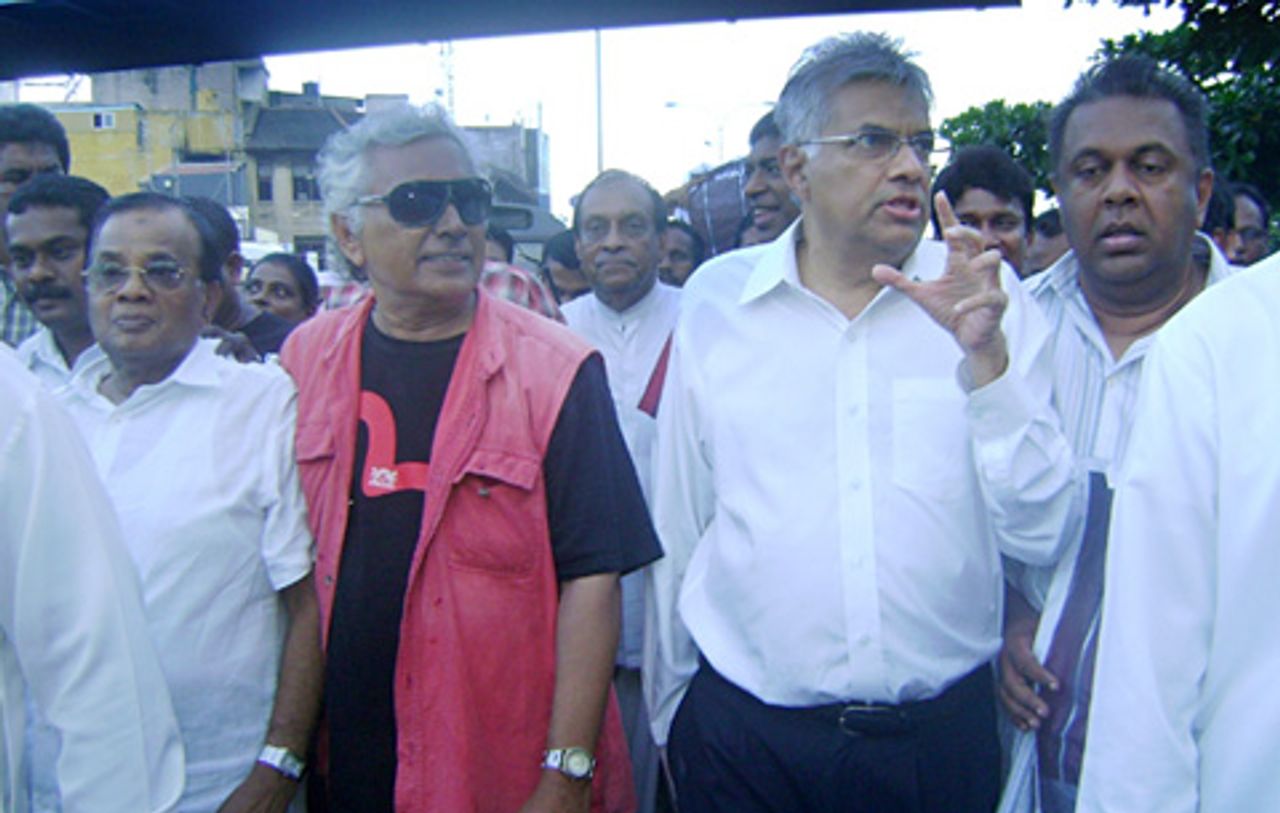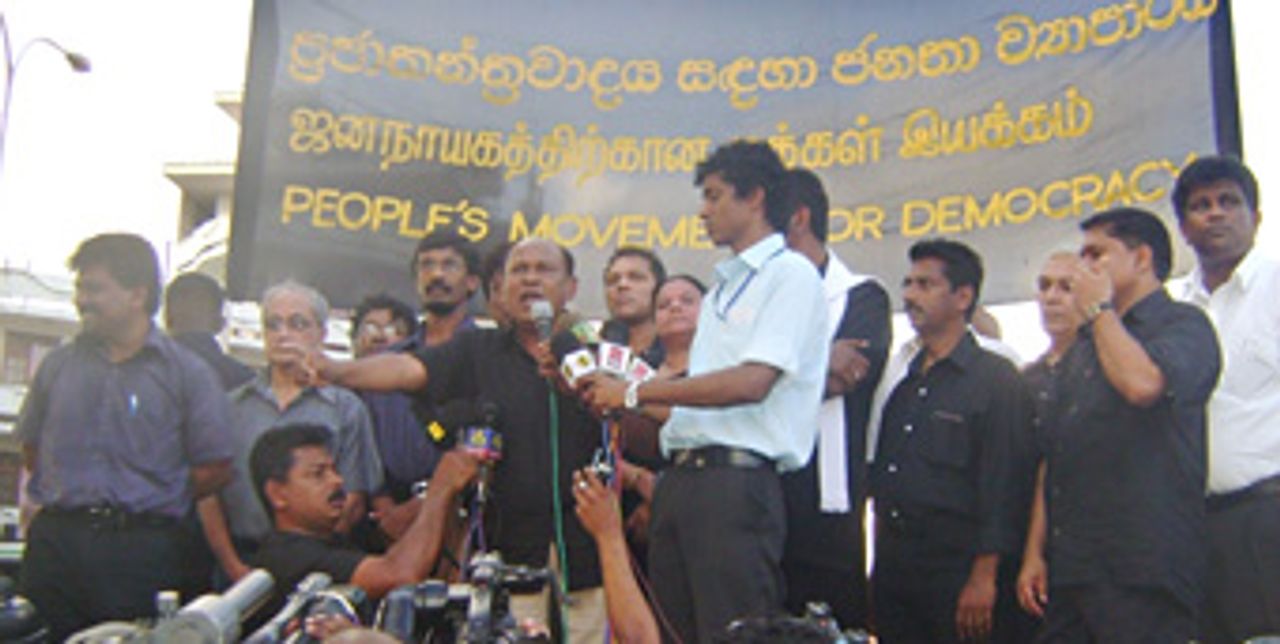In the North and East, it was not only the wives of LTTE fighters who became war widows. Pro-government death squads “disappeared” or murdered hundreds of Tamil civilians, who were allegedly connected to the LTTE or critical of the war. Many thousands more civilians died in the murderous offensives waged by the military in the final months of the war that ended in the LTTE’s defeat in May 2009.
After the LTTE’s collapse, the army herded more than a quarter of a million Tamil civilians—men, women and children—into military-run detention camps. In addition, thousands of young people were interrogated and dragged off to unknown centres for “LTTE suspects”. Those who have been released have returned to war-ravaged towns and villages without basic services and little or no aid.
Deputy Minister for Womens Affairs and Child Development, M.L.A.M. Hizbullah announced late last month that he had a list of 89,000 war widows—49,000 in Eastern Province and 40,000 in Northern Province. Among them were 12,000 below the age of 40 and 8,000 who had at least three children. “We need help to look after the war widows and we are seeking help from abroad for this,” he said.
In reality, the Sri Lankan government has washed its hands of these victims of its war. Widows who can produce a death certificate for their husbands receive 50,000 rupees ($US442) in compensation. The remainder are given only 150 rupees a month. This sum is even not enough to cover food for one person for a day, let alone a family for a month.
Saroja Sivachandiran, director of the Centre of Womens Development, a voluntary organisation in northern Jaffna, provided the WSWS last week with its statistics for war widows in the North: 26,340 in Jaffna district; 5,403 in Kilinochchi, which was the LTTE’s administrative centre; 4,303 in Vavuniya and 3,994 in Mannar. The figures for the district of Mullaithivu, where the military’s final offensive took place, are not available.
The husbands of these widows were either killed in fighting or disappeared, Sivachandiran explained. In Jaffna district alone, 3,118 widows are under the age of 40, and 38 are under 20. The statistics also show that 1,042 women were widowed after their husbands committed suicide—victims of the economic and social crisis produced by decades of war.
Sivachandiran said: “Although their husbands were abducted before their eyes, the women had to keep silent as there was no guarantee for their lives. Even when a complaint was made to the police, the courts or the government-appointed Human Rights Commission, they did not receive proper decisions and are still waiting for their husbands.”
Most young widows live with their parents or relatives, while many of the middle-aged women live on their own. They survive with the aid of some voluntary groups or the meagre government assistance. Some widows earn a little income in casual jobs or by running small businesses. It is common to find women, including widows, working for businesses on low wages. Some have been traumatised and should receive medical help.
Sivachandiran added: “What is the situation of the abducted people? The government has the responsibility to make inquiries and find them. The wives saw their husbands taken away. Here everything is decided by the government. We don’t have any confidence that these women will get any justice.”
The WSWS spoke to several widows in the Jaffna area. All of them were very thin—a clear sign that they did not have proper meals. They were wearing old clothes and lived in makeshift accommodation.
Kamala, 30, explained: “My husband died at the age of 26. He produced Palmyra toddy [a type of alcohol]. He worked in the neighbouring village. As usual on May 15, 2006 my husband left for work at 7 a.m. He usually returned at 10 a.m., but he did not come back. We searched for him and finally found him dead that evening. His body was buried in the soil inside a deserted house. His legs had been tied, his head had been beaten and his neck had been cut. We have no doubt that it was done by the navy.
“I have been injured in a shell attack. I still have pieces of shell in my body. Now I am unable to walk properly. I have two children. My father cares for us. He is a fisherman and very poor. I would not be in such a situation if my husband were alive. The government gives me 150 rupees per month. My seven year old girl and six year old boy study at a local school. I don’t have a house and live in a shanty.”
Krishna, also 30, said her husband died in December 2000. He was asked to join the LTTE for training. He refused twice but the LTTE finally took him off by force. Her son and daughter are now 12 and 10. When WSWS reporters spoke to her in mid-October, she still had not received the government’s 150-rupee allowance for September.
Krishna was detained last year in the military’s detention camps and had only recently returned. She lives with her mother. When she was released she was given 25,000 rupees, 12 sheets of corrugated iron and six bags of cement to build a house. She has just finished building a small hut. “The war devastated our lives,” she said.
A widow, 50, from Akkarayan in the district of Kilinochchi said: “My husband was killed in a shell attack by the military in May last year at Mullivaikkal [in the Mullaithivu district]. I have two sons and two daughters. My elder daughter has finished the advanced level [university entrance] examination. The army arrested her when we entered the military-controlled area. I have still not found her. We were sent to the Ramanathan [detention] camp. We asked several military officers about my daughter, but they did not tell us anything.
“Three months have passed since we were resettled. Our house had been demolished. The military did not allow us to return to our land. Now we are living in a tent given to us by a non-government organisation. The tent will flood when the rain comes. I don’t have any income. I receive only the government’s relief. They said it would stop after six months. My three children are going to school. I am unable to afford their expenses.”
She expressed her anger at the government and all political parties, including the various Tamil parties. “None of the political parties has come to help us. They only arrive at election time,” she said. Referring to the government’s boasting about economic development, she added: “It is just for show when the government talks about ‘economic war’ and ‘nation building’ while it keeps us here in tents starving.” (wsws)









